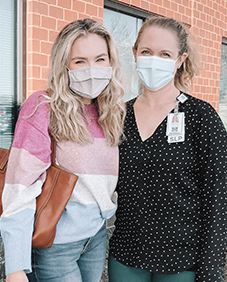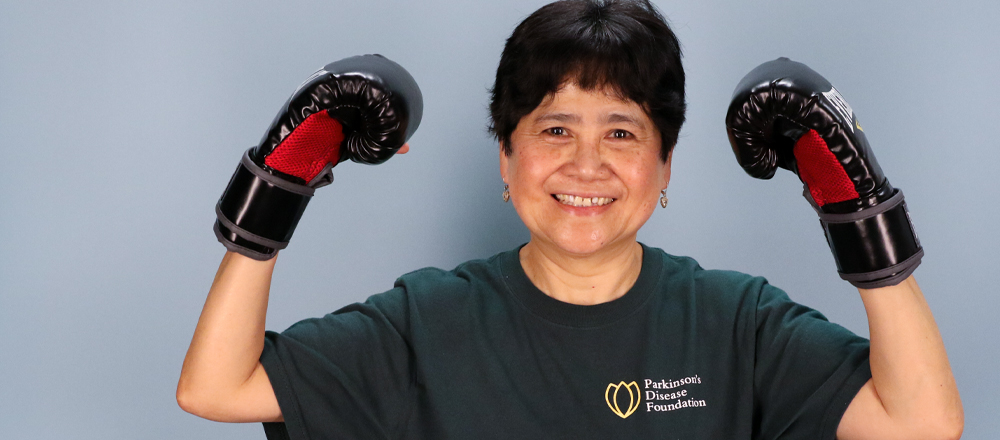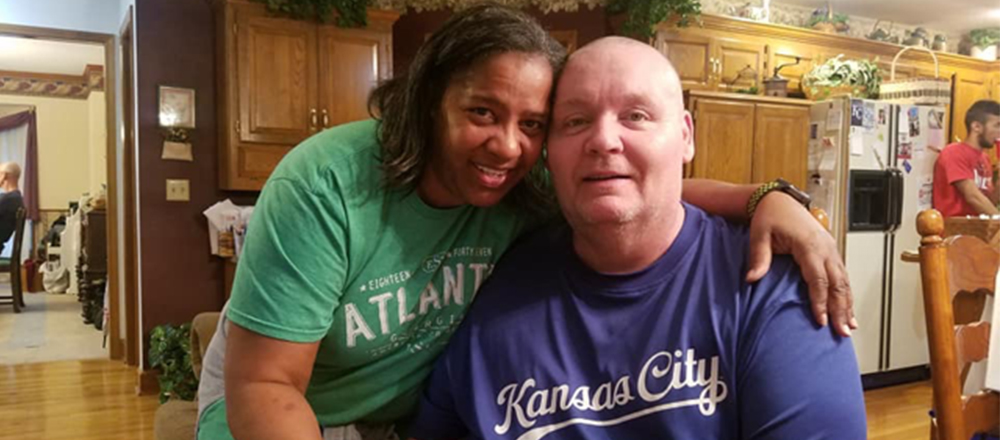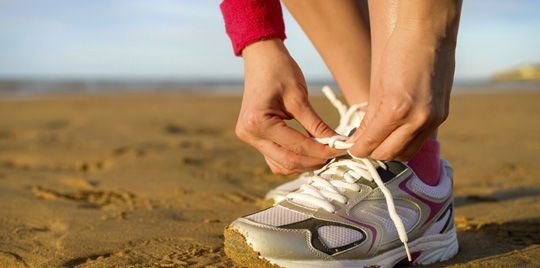Post-Concussion Syndrome: One Woman's Invisible Injury
May 25, 2021By: Lib Hastert
Categories: Neurosciences, Patient Stories, Rehabilitation Services

When 25-year-old Alexandria Baldovinos was in a highway pileup that gave her a concussion, an ambulance took her to the hospital for evaluation. Alexandria received medical clearance and orders to rest and take muscle relaxers at home. Despite following the doctor’s orders, Alexandria started to feel worse as the days passed.
Seeking Answers After a Concussion
A couple weeks after the accident, Alexandria, then a substitute teacher, began experiencing dizziness and vision, memory and reading issues.
“A year after graduating from my master’s program, I was struggling to read basic sentences. It didn’t make sense,” Alexandria recalled.
Her symptoms worsened as the weeks went on. She started having chronic headaches and social anxiety. Concerned, she saw a concussion specialist who diagnosed her with post-concussion syndrome and referred her to North Kansas City Hospital’s cognitive rehabilitation program.
Beginning Rehab for Post-Concussion Syndrome
 Alex with Stephanie, her Speech-Language Pathologist
Alex with Stephanie, her Speech-Language Pathologist
At the time Alexandria started rehab, the concussion was affecting all aspects of her life.
“Whether it was working as a substitute teacher or making a run to the grocery store, everything was difficult at the time,” Alexandria remembered.
Adding to her frustration, she didn’t initially understand why she was assigned a speech language- pathologist. She wasn’t having speech issues, so it came as a surprise.
“As a speech-language pathologist, my scope of practice involves everything from the neck up,” explained Stephanie Ramirez, MA, CCC-SLP, a speech-language pathologist at NKCH. “This includes speech but also language, attention, memory, problem solving, voice and even swallowing.”
Stephanie, who managed Alexandria’s cognitive rehab, began by introducing Alexandria to memory aids. Whether it was using sticky note reminders or creating a narrative to remember something, the tools Alexandria learned in rehab helped her memory improve.
Alexandria was also tasked with visual scanning exercises and reciting sentences backwards. These two tools helped with visual and auditory attention. Over time, Alexandria practiced these exercises with and without background noise to prepare for concentrating in noisy environments like a classroom or grocery store.
Keeping the Faith After a Traumatic Brain Injury
Alexandria turned a corner during cognitive rehab. After learning more about her condition, she got a job that better fit her needs and eased some of the work stress she previously experienced.
Even after successfully completing rehab, Alexandria sometimes feels like she’s taking one step forward and two steps back. She wants people facing similar challenges to know these setbacks are normal and OK.
“I look fine to the outside world, but I still struggle sometimes,” Alexandria said. “I just remind myself to not feel bad, even on days when progress comes slow.”
As Alexandria’s time with Stephanie came to an end, she reflected on how far she had come. She also took comfort in knowing she can continue her rehab at home with the skills she learned.
Getting Concussion Support
Healing from a brain injury can be a tough and sometimes isolating experience, but there's help. Whether you’re suffering from a concussion or another traumatic brain injury, the Brain Injury Support Group at NKCH can help you find effective ways to heal and connect with people who share similar experiences.


